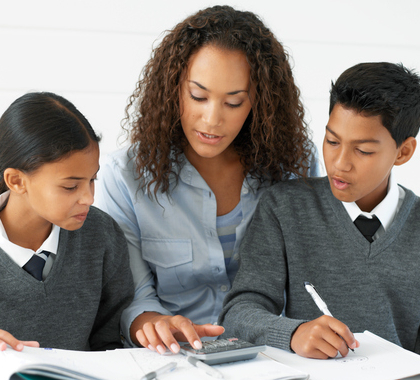ESAs grant parents access to some or all the money allocated for their children’s public education to use on educational alternatives such as private school tuition, homeschool textbooks, tutoring services, and learning therapies.
Arizona implemented the nation’s first ESA program in 2011, the Empowerment Scholarship Accounts program, which grants ESAs to adopted and special-needs students, students in failing schools, and students living on Native American reservations. The program served 3,357 of the approximate 1 million students currently enrolled in Arizona public schools.
Gradual Expansion
Senate Bill 1431, sponsored by state Sen. Debbie Lesko (R-Peoria), would expand ESAs to all Arizona children currently attending public schools. The program would gradually roll out according to grade level, until all grade levels are eligible in the 2020–21 school year.
The Senate Education Committee passed SB 1431 in early February. The bill needs 16 votes to pass the Senate and move to the Republican-controlled House. One Senate Republican, out of 17 total, declared she will vote against SB 1431.
Keeping Public Schools in Mind
The Goldwater Institute’s Education Director, Jonathan Butcher, says SB 1431 was designed to allow public schools to have a sufficient transition period.
“This bill will make all public school students in the State of Arizona eligible over the course of four years,” Butcher said. “We wanted the program to phase in in such a way that all of the school districts that have students using ESAs have time to adjust, in such a way that wouldn’t disrupt district schools.”
Lesko says her bill would benefit public schools and their students.
“The more competition there is—whether that be private schools, charter schools, or online schools—the more traditional district schools have to improve their game, like any other free-market product,” Lesko said. “Especially for special-needs students, [ESAs] help the state to budget, because for every special-needs student who leaves a district school, it saves the general fund—on average, per student, per year—$1,400.”
‘I’m Very Hopeful This Year’
Lesko says her legislation has a good chance of passing during the current session.
“I need 16 votes to pass the bill in the Senate, and right now, I have a guaranteed 15,” Lesko said. “No Democrats are voting for it. There are 17 Republicans in the Senate, and one has said no. I’m very hopeful this year.”
Butcher says Arizonans are used to choice and want more.
“I think in a state like Arizona, where you have charter schools, open enrollment, private school scholarships, and tax-credit scholarships, parents are accustomed to choosing how and where their children learn,” Butcher said. “I feel confident we have a quality piece of legislation, and it’s a natural next step. We’ve had strong supporters in the legislatures for several years.”
Lesko says public school advocates are forcefully expressing their opposition to SB 1431.
“I think the winds have changed, from nationwide down, and people are promoting school choice,” Lesko said. “It’s making the public school establishment go absolutely crazy, and they are coming out with everything and anything to oppose this bill, including protesting outside my house.”
Ashley Bateman ([email protected]) writes from Alexandria, Virginia.




